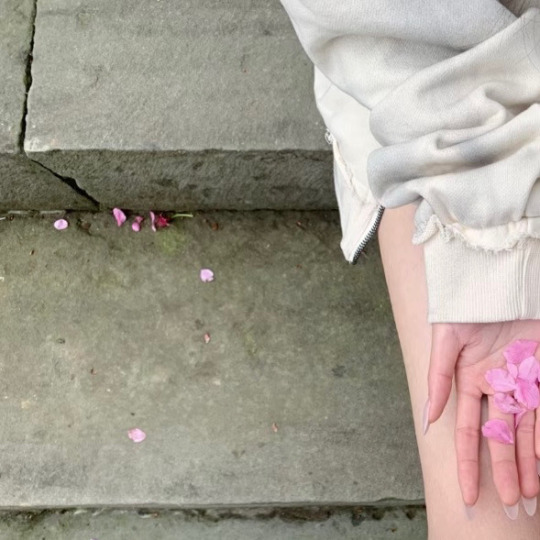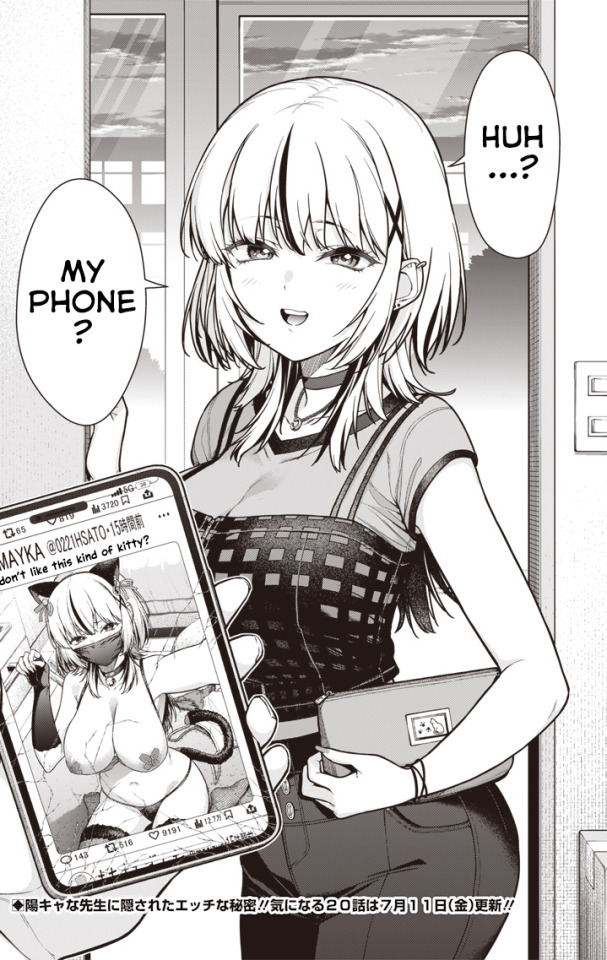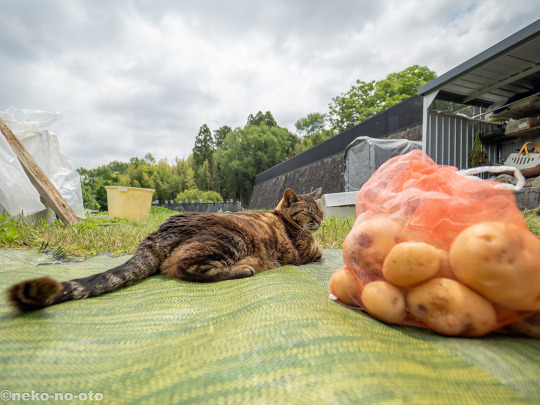#たそ
Explore tagged Tumblr posts
Text




。₀:*゚✲゚* タクティックス
♥︎ ⠀ ⠀ ♪ ⠀ ⠀ ✝︎ 💧


ൃུ ㅤٝ✿ֶ⠀ ᩙ🌺 memories of peaches,
𝚝𝚑𝚎 𝚜𝚞𝚗 𝚘𝚗 𝚖𝚢 𝚗𝚎𝚌𝚔 ❤︎ ⠀ ꫶ࣺ᭮᭰



#⠀ ⠀ ⠀ ⠀ ⠀ ⠀ ⠀ ⠀ ⠀ ⠀ ⠀ ⠀ ⠀ ⠀#ᨳິ ⠀⠀ ♡̵̼͓̥͒̾͘♥︎♡̵̼͓̥͒̾͘ ⠀⠀ ♪ ⠀#そして、あなたがいなければ、私は自分自身に執着すると思います#kpop#kpop moodboard#messy moodboard#messycore#indie moodboard#mb#moodboard#aesthetic moodboard#kpop icons#random moodboard#aesthetic#kpop layouts#archive moodboard#soft moodboard#kpop aesthetic#coquette moodboard#fresh moodboard#taesan moodboard#taesan icons#taesan layouts#bnd taesan#bnd moodboard#bnd icons#bnd layouts#layouts#kpop bg#kpop bg moodboard
476 notes
·
View notes
Text

🌈🖍️ 🎈ペットといっしょに たのしくあそぼ♪ パソコンピコ2004Wow Wow Wow 🍮⭐️🎀△□○˖ ・ ·̩ 。 ☆ ゚ * ¸* .🎀⭐🌈#。 ♩✿. ⭐️☘️🌈(๑˃́ꇴ˂̀๑)☆.:*・˚⊹˚‧˚✩#。 ☘️☀️🎀(ノ◕ヮ◕)ノ*.✧:・゚
#⭐️🎀🌈 🎀 ⊹︵︵︵ ⊹ ୨୧ ⊹ ︵︵︵ ⊹ 🎀⭐️🎀🌈#☘️🎒 ‧₊˚ ⋅⋅˚ ๑‧˚₊˚ ๑‧˚₊꒷︶🎀🌈︶꒷꒦⊹๑‧˚₊🥬🎀🌈.・✫・ !!・:*๑◕‿‿◕๑・:*lala chan🌈⭐🌸 ⋅୧ ‧₊˚ ꒷︶🎀🌈︶꒷#⭐˖ ・ ·̩ 。 ☆ ゚ * 🌸 ˚ ༘♡ ⋆。˚ㅤ ララ月太陽ㅤㅤ꒰ 🍮 ꒱ ⠀⠀⠀⠀イ. ₊ ˚ ׅ ㅤ🥐 。˚ ◟⭐️🎀🌈⭐˖ ・ ·̩ 。 ☆ ゚ *(≧▽≦)⭐️🚎🌈#🥞⭐️🎀·̩ 。 ☆ ゚ * ¸* .Cheki☆Love·̩ 。 ☆ ゚ * ¸* .🥞⭐️🎀#かわいい#Pet to Issho ni Tanoshiku Asobo♪#PC Pico#kawaii#gif#aesthetic#Pet to Issho ni Tanoshiku Asobo♪ PC Pico#ペットといっしょに たのしくあそぼ♪ パソコンピコ#animecore#otakucore#kawaiicore#weebcore#SEGA#webcore#sega retro#heisei retro#heisei era#otaku☆chan#my gifs#jojifuku#nijicore#PICO
345 notes
·
View notes
Text



he's just a silly straw

yellow said RIDE MY MACHINES BOY ‼‼‼‼
227 notes
·
View notes
Text

TARUCO!!!!!! dodle while i struggle on something wlse currently
160 notes
·
View notes
Text

ええ箱でしょ。
Favorite box.
197 notes
·
View notes
Text







#❘❙ ☆⃞★⃞ ༀ ̎̿͞͞͞͞͞͞͞͞ ིུ͠* ━╋ 𝒹oꪶ�� 𝄡 𖡄̽ݴིꨩ#鏡の前で君とまどろむ 薄紅の指先その手は不意に弱さを見せて 唇をふさいだあの日 君と約束を 交わした今は二人 想い出せずに#giselle layouts#giselle icons#giselle headers#aespa layouts#aespa headers#aespa icons#jennie headers#jennie icons#jennie layouts#blackpink headers#blackpink icons#kpop gg icons#gg layouts#kpop icons#kpop girls#kpop gg#hannibal#haniball headers#anime headers#death note headers#anime icons#anime layouts#messy layouts#messy icons#lq icons
346 notes
·
View notes
Text

[[DIE ALREADY]]
#tetro danganronpa pink#wada masanari#blakeart#ow the angst#Why...? 脆すぎた世界 留める術を知らずに#ただ僕は願ってた#そう… 忘却を#悲しみの向こうへと 辿り着けるなら#僕はもうこれ以上 何も感じなくていい…
166 notes
·
View notes
Text

#sweet mother of mercy#Anata-tachi Soredemo Sensei Desu ka!#あなた達それでも先生ですかっ!#nekomimi#catgirl#facemask#smartphone
71 notes
·
View notes
Text

🌈☀️🌺🍓🎀☘🐬
#🎀🐬☀️🌈⋆ ˚。𖦹 ⋆。°✩🎀🐬☀️🌈#(˵ •̀ᴗ•́˵)وいいね🎀🐬☀️🌈☘💗#このエディションは本当に気に入りました🍓💚🌺🍮🌊🐈#これを補完するために他の編集をしようと考えましたが、怠惰のためにそれはできませんでした☀️🌈🍮🎀🍯#kawaii#kawaiicore#gyaru#gyarucore#tropical#tropicalcore#summercore#pinkcore#jojifuku#rainbowcore#aesthetic#weebcore#otakucore#webcore#animecore#neetcore#2000s core#2000s#00s#vn#visual novel#game cg#gyaru gal#hime gyaru#gyaru fashion#y2k
335 notes
·
View notes
Text


● ‘S’, which was popular from the Taisho to the early Showa period.
Acronym for Sister, a special relationship between female students who are not related by blood, or between female teachers and others.
The two ‘es’ were not confined to the framework of ‘friends’, as the junior students called the senior students ‘sisters (Onee-sama)’, corresponded with them and gave each other gifts, and had a friendship that was close to romance, involving longing and admiration.
The background to the popularity of this culture was the fact that at the time, there was a strict focus on pre-marital relationships between men and women. (Even in the illustrations of girls that were popular at the time, men and women were rarely depicted together.) It was perceived by the public as a ‘rehearsal for love to become a good wife and mother’ or as a ‘transient emotion’ and was tolerated in platonic relationships.
●大正〜昭和初期に流行した「エス」とは
Sisterの頭文字を取った名称で、血のつながりのない女学生同士、あるいは女教師などとの特別な関係のこと。
エスの2人は、下級生は上級生を「お姉様」と呼び、文通をしたり、プレゼントを���りあったりと、「友達」の枠には収まらない、思慕や憧れを含んだ恋愛に近しい交友がありました。
このような文化が流行した背景には、当時は結婚前の男女交友に厳しい目が向けられていたことがあります。(当時流行した少女イラストの中ですら、男女が一緒に描かれることが殆ど無かったほど。) 世間からは、「良妻賢母となるための恋愛の予行練習」であったり、「一過性の感情」であると認識され、プラトニックな関係においては容認されていました。
202 notes
·
View notes
Text

おじゃができたで。おいしいで。
Potatoes are ready.It was delicious.
But, she is not really interested in them.
#photography#cat#neko#potato#写真好きな人とつながりたい#ねこ#無断転載厳禁#新じゃが#じゃがいも#うりさんは興味がないご様子#まぁそうだよね#イモ派ではなくカリカリ派#ウェットも捨てがたい
129 notes
·
View notes
Text
That's true / You're right / Showing agreement (そっか / たしかに / まあね)
As always, the nuance in Japanese needs me to document this down.
そっか - also means I understand you, shows empathy
たしかに - had different opinion, but now I agree you're right
まあね - subtle agreement, may have a slightly different opinion, but don't want to say it aloud
A: 今日、パスタ食べに行かない? B: うーん、パスタか... 。昨日も食べたんだよね。 A: そっかー。 [A immediately understands and acknowledges B's reason for not wanting pasta (ate it yesterday).] B: じゃあ、和食は?OOOの定食、美味しいらしいよ。 A: 和食か... 。ちょっと高いんだよね、あそこ... B: あ、そうだった?ランチは手頃な値段って聞いたけど。 A: たしかに、ランチなら大丈夫かも。夜は高いけど。 [A initially hesitates about Japanese food due to price. B provides new info (lunch is cheaper). A uses "たしかに" to agree with B's point about "lunch price" specifically, shifting from initial price concern to accepting lunch as an option.] B: よかった。じゃあ、和食にする? A: まあね、和食もいいね。たまには。 [A agrees to Japanese food, but "まあね" and "たまには (tama ni wa - once in a while)" show subtle agreement. It's acceptable, but not a passionate "YES! Japanese food!".] B: うん、そうしよう。
#そっか#たしかに#まあね#studyblr#langblr#japanese langblr#日本語#japanese#レッスンメモ#meownotes#that's true#you're right
75 notes
·
View notes
Text

みなみたそたそ
316 notes
·
View notes
Text
happy april fool's!! for the occasion i shall NOT be posting art today, but rather:
Japanese First + Second Person Pronouns the Ancients and Beasts use!
*i have to clarify that these interpretations of the language they use is mine alone, and that what pronouns they use imply is highly situational!! The same pronoun can have different meanings depending on situation and who's using it, it's a bit complicated to explain.... it's very if you get it you get it (?)
*disclaimer no 2 i may be inaccurate in conveying some of the nuances and for that i apologize ;;
it'll go first person pronoun (I/me) first and then second person pronoun (you)
Pure Vanilla Cookie
僕 (boku), a more polite, somewhat gender neutral first person pronoun (although it's considered more masculine than feminine).
君 (kimi), a polite way of saying “you”.
Hollyberry Cookie
あたし (atashi), a more casual and informal feminine first person pronoun
あんた (anta), a more informal form of “anata (あなた)”, which is the classic way of saying "you" for a more feminine person
Dark Cacao Cookie
私 (watashi), a formal first person pronoun. Feminine-presenting people also use it casually, however with more masculine-leaning people like Dark Cacao it gives off an air of formality
お前 (omae), from someone like Dark Cacao, "omae" signals his high status as a king, and has an air of assertiveness. He’s also been shown to switch to the more rude 貴様 (kisama) when he hates someone/feels greatly offended
Golden Cheese Cookie
Uses the more polite and formal 私 (watashi) for the most part, however in informal settings with her fellow Ancients she uses the more casual あたし (atashi)
お前 (omae), it carries a similar meaning to Dark Cacao's use of "omae" for "you" in that it implies her high status. She still uses "omae" even with her friends, although in this case it could be interpreted as it's a very informal setting with people she's close to
White Lily Cookie
私 (watashi), a more classically feminine first person pronoun
あなた (anata), a polite way of saying “you”
-
Mystic Flour Cookie
私 (watashi), a classically feminine and formal first person pronoun
そなた (sonata), a very archaic word for “you”
Burning Spice Cookie
俺 (ore), an informal and more masculine way to refer to oneself
貴様 (kisama), a way of saying “you” that's considered pretty rude generally, and even a bit aggressive (?)
Shadow Milk Cookie
Normally uses 俺 (ore), an informal, masculine pronoun (fun fact even his Sage of Truth form uses "ore"). However, he uses わたくし (watakushi), a more formal form of “watashi” when performing or narrating in his little plays.
お前 (omae), a somewhat assertive way of saying "you"
#i like taking note of these because they give character#i personally thought Shadow Milk would've gone with 僕 or 私#because of all his theatrics#but him using 俺 is also really lovely it gives him character#i love how both the male beasts we have so far use 俺 specifically#Mystic Flour using そなた is cute. old woman. grandma#again Golden Cheese switching to a casual language among her friends >>>#ill add a dragons one as well if you guys so wish maybe since i do play ovenbreak... kinda#crk#cookie run kingdom#crk ancients#crk beast yeast#pure vanilla cookie#hollyberry cookie#dark cacao cookie#golden cheese cookie#white lily cookie#mystic flour cookie#burning spice cookie#shadow milk cookie
68 notes
·
View notes
Text

121 notes
·
View notes
